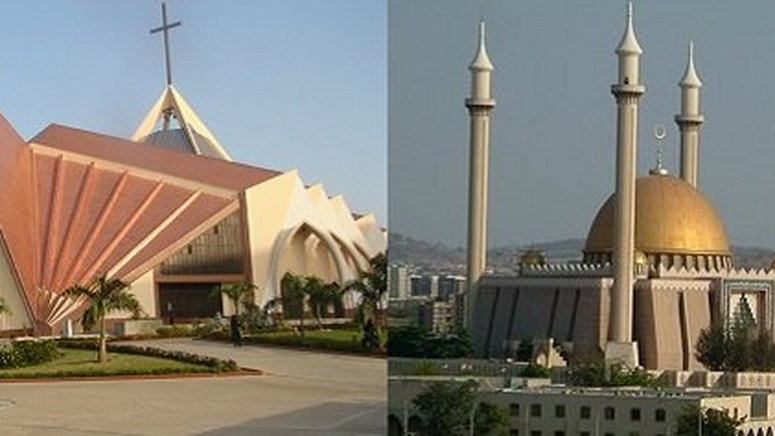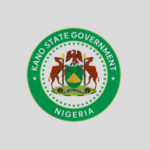Blessed are the peacemakers, for they shall be called the children of God (Matthew 5:11). There are many persons and agencies that have dedicated their lives to the work of peace.
The United Nations for example, is an international organization whose stated aims are to facilitate cooperation in international law, international security, economic development, social progress, human rights, and achieving world peace.
The UN was founded in 1945 after World War II to replace the League of Nations, to stop wars between countries, and to provide a platform for dialogue.
World peace is a humongous project and a dream that only the Divine can achieve.
But if world peace is simply the absence of war, yes, to a great extent.
For Christians, peace is a much deeper concept.
Jesus said “Peace I leave with you; My peace I give to you; not as the world gives, do I give to you. Do not let your heart be troubled, nor let it be fearful” (John 14:27).
In addition, Saint Gerard Majella said: Who except God can give you peace?
Has the world ever been able to satisfy the heart?
The beloved Saint Pope John Paul II captures this reflection on peacemakers very aptly when he says: “Opting for peace does not mean a passive acquiescence to evil or compromise of principle. It demands an active struggle against hatred, oppression and disunity, but not by using methods of violence. Building peace requires creative and courageous action”.
This creative and courageous action leads us to Cyprus where Salpy Eskidjian Weiderud is building incredible bridges as an architect and facilitator of the unprecedented peacebuilding initiative in Cyprus known as the Religious Track of the Cyprus Peace Process, which operates under the auspices of the Embassy of Sweden.
She succeeded to bring to the table for the first-time faith leaders; Orthodox, Maronites, Turkish-Cypriots, Greek Cypriots, Armenian and Roman Catholics; who have never had the cause to meet on the dialogue table for decades despite the religious intolerance.
Salpy shared her experiences in Cyprus with dozens of KAICIID Fellows on the 3rd of June in an online conference that lasted for one and half hours.
Cyprus, is an island country in the Eastern Mediterranean region of Western Asia.
It is the third-largest and the third-most populous island in the Mediterranean, located south of Turkey, west of Syria and Lebanon, north of Israel, the Palestinian region of the Gaza Strip and Egypt, and southeast of Greece.
The earliest known human on the island dates to around the 10th millennium BC.
Archaeological remains from this period include the well-preserved Neolithic village of Khirokitia, and Cyprus is home to some of the oldest water wells in the world Cyprus was settled by Mycenaean Greeks in two waves in the 2nd millennium BC.
As a strategic location in the Middle East, it was subsequently occupied by several major powers, including the empires of the Assyrians, Egyptians and Persians, from whom the island was seized in 333 BC by Alexander the Great.
Subsequent rule by Ptolemaic Egypt, the Classical and Eastern Roman Empire, Arab caliphates for a short period, the French Lusignan dynasty and the Venetians, was followed by over three centuries of Ottoman rule between 1571 and 1878 until 1914.
Cyprus was placed under the UK’s administration based on the Cyprus Convention in 1878 and was formally annexed by the UK in 1914.
While Turkish Cypriots made up 18% of the population, the partition of Cyprus and creation of a Turkish state in the north became a policy of Turkish Cypriot leaders and Turkey in the 1950s.
Turkish leaders for a period advocated the annexation of Cyprus to Turkey as Cyprus was considered an “extension of Anatolia” by them; while, since the 19th century, the majority Greek Cypriot population and its Orthodox church had been pursuing union with Greece, which became a Greek national policy in the 1950s.
Following nationalist violence in the 1950s, Cyprus was granted independence in 1960.
The crisis of 1963-64 brought further intercommunal violence between Greek Cypriots and Turkish Cypriots, which displaced more than 25,000 Turkish Cypriots into enclaves and brought the end of Turkish Cypriot representation in the republic.
On 15 July 1974, a coup d’état was staged by Greek Cypriots nationalists and elements of the Greek military junta in an attempt at enosis, the incorporation of Cyprus into Greece.
This action precipitated the Turkish invasion of Cyprus on 20 July, which led to the capture of the present-day territory of Northern Cyprus in the following month, after a ceasefire collapsed, and the displacement of over 150,000 Greek Cypriots and 50,000 Turkish Cypriots.
A separate Turkish Cypriot state in the north was established by unilateral declaration in 1983; the move was widely condemned by the international community, with Turkey alone recognizing the new state.
These events and the resulting political situation are matters of a continuing dispute.
In March 2014, Greek Orthodox Bishop Porfyrios of Neapolis and Turkish mufti Dr Talip Atalay met for the first time at the United Nations in Geneva on 11 March during the 31st sitting of the Human Rights Council hosted by the Swedish Mission, the gathering took place as a side event, moderated by Salpy, at the meeting, Bishop Porfyrios said there journey of inter-Religious dialogue was in its seventh year, and the negotiations around Cyprus had gone on for 42 years between the leaders of the two communities to “reach a settlement of its problem by ending the island’s division and restoring peace”.
Going down memory lane will help us appreciate the work of Salpy in Cyprus.
After the invasion into Cyprus by the Turkish army in 1974, the cities of Varosha and Famagusta where important holy sites for Christians were located were abandoned.
There have been important religious sites that were abandoned by the muslims in the south and the christians in the north; Salpy was able to facilitate the access to those religious sites from the faith community leaders after decades of abandonment.
In 2018 Salpy was able to facilitate a joint statement from the christian Jewish and Muslim leaders to raise their voice against violence towards women, the first of its kind.
In October 2019, she facilitated the first ever coming together of Jewish, Palestinian, Muslim, Orthodox, Maronites; Armenian and Catholic Youths.
But the most important achievement of Salpy Cyprus for me in our Nigerian context is the fact that she has been able to get the muslim leaders take up issues that concerns christians and get the christian leaders take up issues that concerns the muslims.
This peace initiative is a great achievement. When issues of the Christians communities are being handled by the Muslim communities’ vice vasa.
Thanks to KAICIID (King Abdulla Bin Abdul Aziz Center for Intercultural and Interreligious Dialogue) with its formation of groups like IDFP (Inter Faith Dialogue Forum for Peace) in Nigeria, and thanks to the Nigerian government with its facilitation of a group like NIREC.
We are able to bring to the table different faith leaders to talk.
And in deed we have been talking.
Sometimes I feel our talking is not addressing real issues that affect ordinary Christians and Muslims.
One thing we are not close to achieving is, CAN (Christian Association of Nigeria) talking about justice for our muslim communities and NSCIA (Nigerian Supreme Council for Islamic Affairs) talking about justice for our christian communities.
This I believe we can learn from the incredible work of Salpy Eskidjian Weiderud.
Fr Stephen Ojapah is a Missionary of St Paul. He is equally the director for Interreligious Dialogue and Ecumenism for the Catholic Diocese of Sokoto, a member of IDFP. He is also a KAICIID Fellow. ([email protected])




